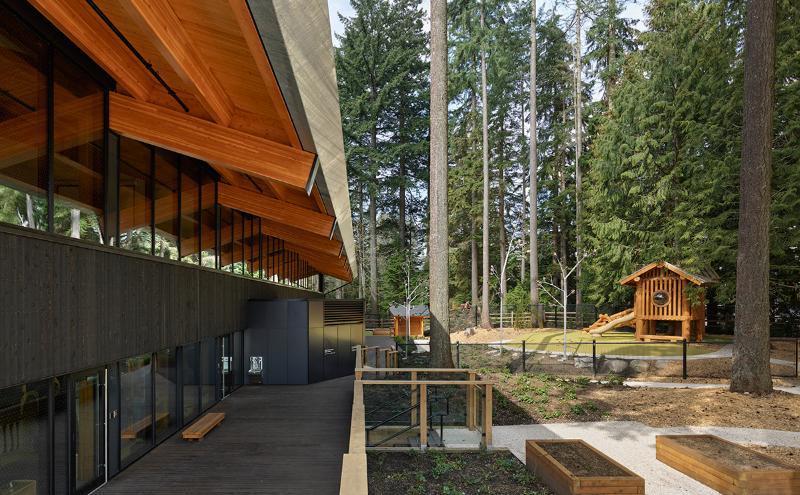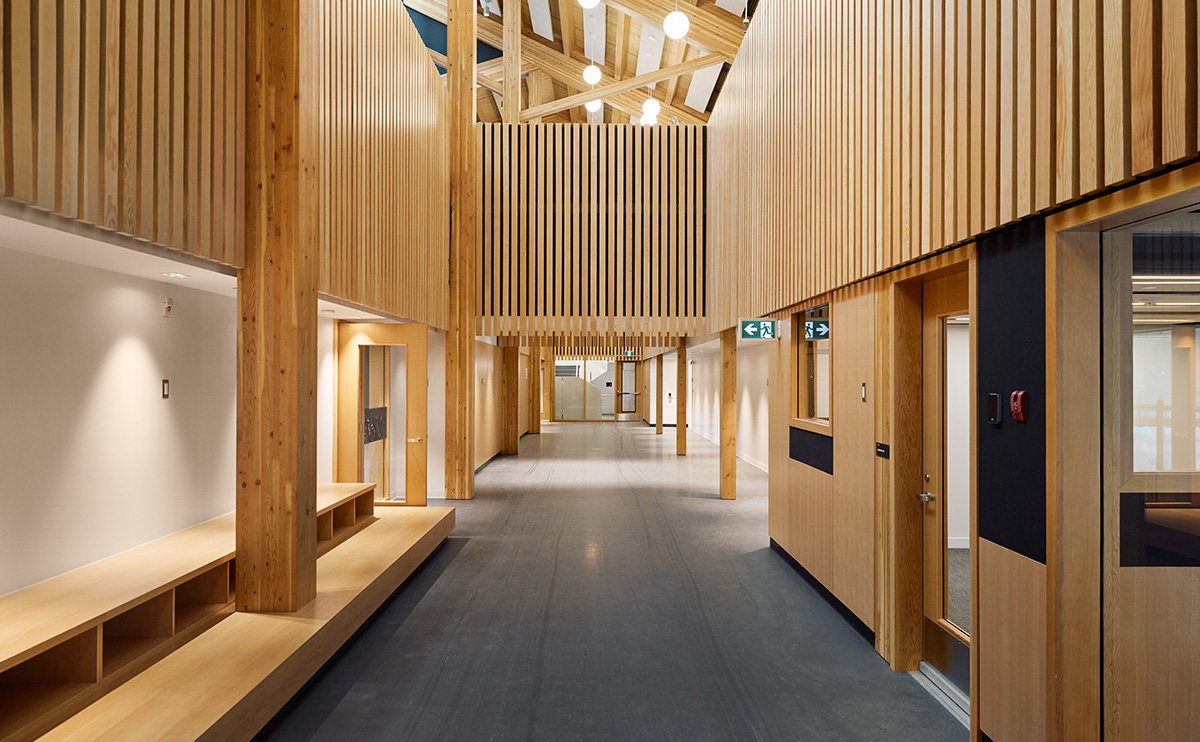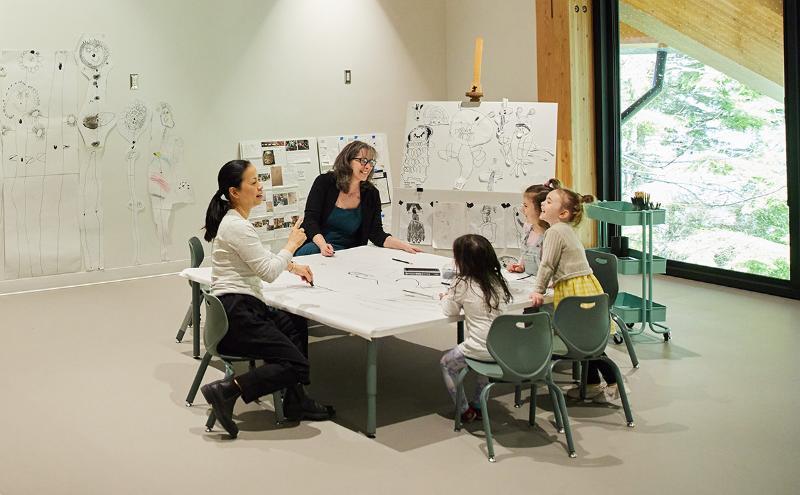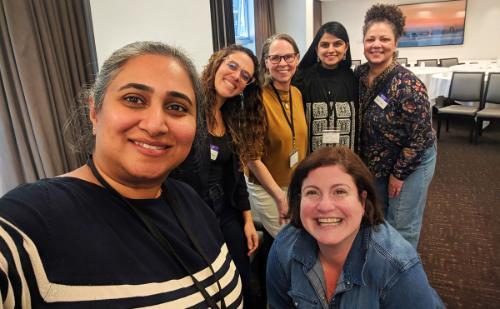Fulmer Centre Opens its Doors
Published14 May, 2025
Photo credit Patrick Leung and Albert Law
The Fulmer Family Centre for Childhood Studies is CapU’s strongest step toward being a hub for early childhood education.

On April 23, 2024, the Fulmer Centre for Childhood Studies officially opened its doors. The centre will be the new home of our School of Education and Childhood Studies, doubling the number of practicum spaces offered at CapU, as well as adding 74 new childcare spaces in the Children’s Centre.
But it’s so much more than just a new building.
“We’re hoping there are lots of those kinds of community-oriented events here in this space where people can gather. Helping them understand the mission behind this centre and this department: to change ideas about early childhood education.”
A new standard for childcare on the North Shore
Standing in one of four classrooms for future “citizens of the world,” as Martin says, you can clearly see the forethought that went into designing a space for children.
The classrooms are split by age groups, two for children aged 0-2 and the other two for children aged 3-5.
While the kids are separated by age, floor-to-ceiling glass walls span the entire rear section of the building, so everyone on the ground floor can see each other.
“The bank of windows along the (back) end are very deliberate,” Martin said. “That’s the idea of transparency and connection with indoors and outdoors.”
Touches like purpose-built cubbies for each child at the centre, furniture constructed with proper backrests for toddlers and a large roof overhang behind the building to partially shield children from rain, set the space apart from most childcare environments.
“Usually, we put children in spaces as an afterthought,” Sara Sutherland, director of Capilano University’s Children’s Centres, says during a walk around one of the toddler classrooms.
“So having a purpose-built space like this that really thought about not just function, but aesthetic and the purpose of what children and educators are going to do here, everything ended up being custom.”
“I can’t wait to use the cubbies.”
There are separate outdoor play areas for the two age groups. The wooden play structures were built from trees removed during the facility's construction and around the existing trees in the area to continue the connection to nature.


The only lab school for future early childhood educators
One of the major drivers for CapU to open the Centre is to increase its capacity for the School of Education and Childhood Studies, which will add 25 per cent more student spaces in its programs. It also adds 20 more in-house practicum placements for early childhood educators training for their new careers.
All courses at the centre are taught on the second floor, with CapU ECCE students having their own entrance, separate from children and families, who enter on the first floor.
While technically the students and children in the children’s centre operate in the same building, students and instructors who want to conduct research or work directly with the children must make a formal request.
“We use a teaching hospital as a parallel,” Martin says. “The children can go upstairs, but the students can’t go downstairs.”

An inclusive space to learn
Upstairs, faculty and staff offices are on one side and an open concept space with classrooms and a studio area for working directly with children.
There is also a large open space for students to collaborate creatively with modular and stackable “bene box” furniture.
The high ceilings and open-concept space would usually create echoes, but special attention was paid to ensuring minimal noise disruptions.
“Each area has sound-absorbing materials,” Martin said. “We’ve been very thoughtful about how to best minimize and mitigate sound.”


The ECCE classroom of the future
Looking to the future, one large classroom on the second floor will eventually be outfitted with the technology to run an ECCE program for students wanting to study remotely.
“In a few years, we’re hoping this will be one of the classrooms that will run a ‘hy-flex’ (hybrid-flexible), which means students can participate whether they are in-person or somewhere else around the globe,” Martin says. “There’s enough demand for ECCE provincially and nationally to be able to teach students from far away.”
Fulmer Centre for Childhood Studies
The Fulmer Family Centre for Childhood Studies is a new, purpose-built facility that integrates teaching, research and experiential learning spaces.
Fulmer CentreA community gathering place
“We’re hoping there are lots of those kinds of community-oriented events here in this space where people can gather,” Martin said. “Helping them understand the mission behind this centre and this department: to change ideas about early childhood education.”
“Bringing people from the community to the building to help them understand what is happening in [ECCE] is really important.”



